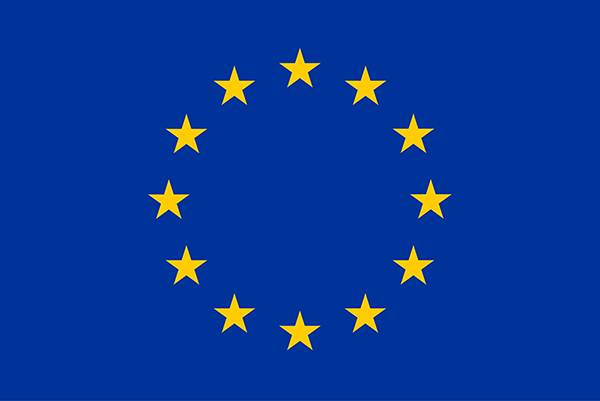Background
HoliSoils focuses on forest soils and considers them to be an essential—but often neglected—part of forest ecosystems, with abundant biodiversity determining overall ecosystem functionality and provision of ecosystem services (e.g. timber resources, water supply, carbon sequestration). The overall goal of HoliSoils, an EU Horizon 2020 project, is to develop a harmonised soil monitoring framework and to identify and test novel holistic soil management practices that will help to mitigate climate change, adapt forests to cope with climate change, and sustain provision of forest ecosystem services essential for human livelihoods and wellbeing. To this end, HoliSoils incorporates novel methodologies and expert knowledge on analytical techniques, data sharing, soil properties, and model development in order to develop tools for soil monitoring, refine greenhouse gas (GHG) assessment of the Land Use, Land Use-Change and Forestry (LULUCF) sector, enhance efficiency of GHG mitigation actions, and improve numerical forecasting of soil-based mitigation, adaptation and ecosystem services.
Objectives
Advance knowledge of forest soil properties, processes, biodiversity, and activity of soil microbiota, all of which influence soil-based ecosystem services (wood production, reduction of GHG emissions, water supply, soil nutrient retention, avoidance of land degradation) in organic and mineral soils;
Develop and improve state-of-the-art soil models, harmonise them into a monitoring framework for estimation of carbon (C) and GHG fluxes, nitrogen (N), and base cation stocks in forest soils, and integrate them into forest ecosystem models;
Develop standardised sampling and monitoring protocols for soil sampling, GHG reporting, harmonise legacy soil data from multiple sources and make them available to end-users through a web portal, and develop and apply digital soil mapping methods to facilitate model upscaling to the European scale;
Determine effects of management on soil functionality, biodiversity, nutrient stocks, (i.e. C, N, phosphorous (P), potassium (K), magnesium (Mg), calcium (Ca), and manganese (Mn)), organic matter quality, and stabilisation processes, and integrate C and N into numerical models, and to develop holistic climate-smart forestry, taking into account soil productivity, GHG exchange, water availability, erosion, and soil resilience (avoidance of degradation), and study their soil-related climate change mitigation and adaptation potential on mineral and organic (forested peatland) soils;
Determine effects of natural disturbances on soil functioning and resilience, identify good management practices for preventing soil degradation, and map soil vulnerability;
Study the impacts, trade-offs, and synergies of climate-smart forestry scenarios for soils and forests on the Europewide GHG balance and water budget under future climate conditions and disturbance regimes;
Boost collaboration between universities, research institutes, and intergovernmental bodies such as the European Union (EU), United Nations Framework Convention on Climate Change(UNFCCC), United Nations (UN) Intergovernmental Panel on Climate Change (IPCC), and Food & Agriculture Organization of the UN (FAO), and facilitate the transfer of developed approaches, knowledge, and tools globally to operators within the forest sector via a multi-actor approach.
ISRIC Activities
- Contribute to review of current soil sampling and monitoring methodologies used in GHG inventories and soil monitoring networks
- Co-develop resource-efficient soil sampling design, monitoring, and measurement protocols for a harmonised GHG inventory;
- Store shared forest soil data (from T3.3) in a central repository and subsequently harmonise;
- Create 100m resolution soil property maps to support modelling;
- Co-develop a web-based platform for soil information to be used by models.
Deliverables (with Thünen)
- Review of soil monitoring programmes; guidelines and protocols for soil sampling, monitoring, and analyses, allowing harmonisation of a Europe-wide GHG inventory (Contributes to Deliverable D3.3).
- Chapter B - Options for harmonising soil data obtained from different sources (submitted, in peer review)
- Chapter C- Uncertainty estimation of Tier 1 GHG reporting(submitted, in peer review)
- Harmonised soil data (Contributes to Deliverable D3.4).
- For progress report see HoliSoils news item (May 2023) and related dashboard. (June 2023); the final report providing further information is available here*.
- High-resolution maps of forest soil properties to support model upscaling to the European scale (Contributes to Deliverable 3.5).
- Work in progress: builds on the set of harmonised soil data (sub 2) using 100m resolution digital soil mapping.
- Data and map serving via Thünen's TISDAR web portal, as well as data.isric.org. (Contributes to Deliverable 3.6)
* Report under review by EU.
Consortium
- Natural Resources Institute Finland (Luke), coordinator, Finland
- Institute of Microbiology of the Czech Academy of Sciences (IMIC), Czech Republic
- French National Centre for Scientific Research (CNRS), France
- Johann Heinrich von Thünen Institute (TI), Germany
- Basque Centre for Climate Change (BC3), Spain
- Vrije University Amsterdam (VU), The Netherlands
- European Forest Institute (EFI), Finland
- Wageningen Research Foundation (WR), The Netherlands
- ISRIC - World Soil Information, The Netherlands
- Stockholm University (SU, Sweden
- Transylvania University of Brașov (UTBV), Romania
- University of Barcelona (UB), Spain
- University of Aberdeen (UNIABDN), United Kingdom
- Vytautas Magnus University (VMU), Lithuania
- Aix-Marseille University (AMU), France
- Technical University of Munich (TUM), Germany
- Technical University in Zvolen (TUZVO), Slovakia
- Forest Science & Technology Centre of Catalonia (CTFC), Spain
- National Institute for Agricultural Research (INIA), Uruguay
- Forestry & Forest Products Research Institute (FFPRI) 森林総合研究所 Research institute, Japan
Funding
| EU Horizon 2020 Grant agreement ID: 101000289. |  |